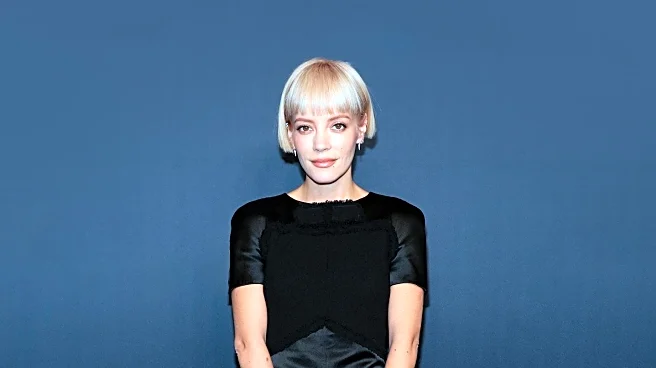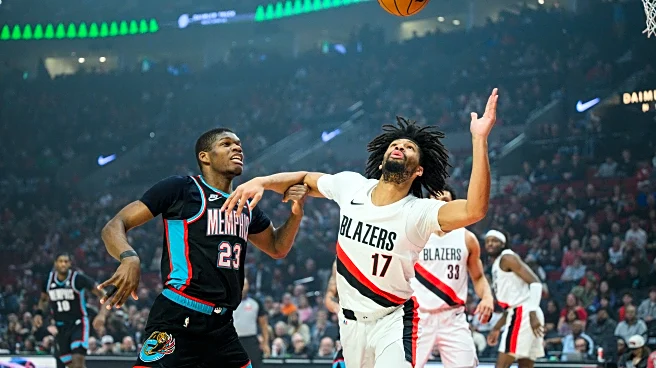What's Happening?
Lily Allen attended the London premiere of 'The Hunger Games: On Stage' in Canary Wharf, showcasing a striking sheer black knit Dior dress from the Galliano era, dated 1999. The dress featured a high neck
and long sleeves, paired with a black thong, and was complemented by platform black Louboutins and a selection of rings. Allen's hairstyle was a gathered and layered bun with her signature bangs, and she opted for a sheer pink manicure and minimal makeup. This appearance is part of Allen's ongoing embrace of the 'revenge dress' trend, following the release of her album 'West End Girl,' which documents the breakdown of her marriage to actor David Harbour.
Why It's Important?
Lily Allen's choice of attire at the premiere highlights the cultural phenomenon of 'revenge dressing,' where individuals use fashion to make bold statements following personal upheavals. This trend has gained traction in celebrity circles, often symbolizing empowerment and resilience. Allen's album 'West End Girl' has been well-received, and her fashion choices continue to draw attention, reinforcing her presence in pop culture. The visibility of such trends can influence fashion industry dynamics, encouraging designers to create bold, statement pieces that resonate with themes of personal empowerment and transformation.
What's Next?
As Lily Allen continues to make public appearances, her fashion choices may further influence the 'revenge dress' trend, potentially inspiring other celebrities and individuals to adopt similar styles. The fashion industry might respond by producing more daring and expressive designs that cater to this growing demand. Allen's ongoing public engagements and performances could also provide additional platforms for showcasing her evolving style, further cementing her influence in both music and fashion.
Beyond the Headlines
The concept of 'revenge dressing' touches on deeper themes of self-expression and personal narrative through fashion. It challenges traditional notions of dressing by prioritizing emotional and psychological empowerment over conventional aesthetics. This trend may encourage broader discussions on the role of fashion in personal identity and societal perceptions, potentially leading to shifts in how fashion is marketed and consumed.









